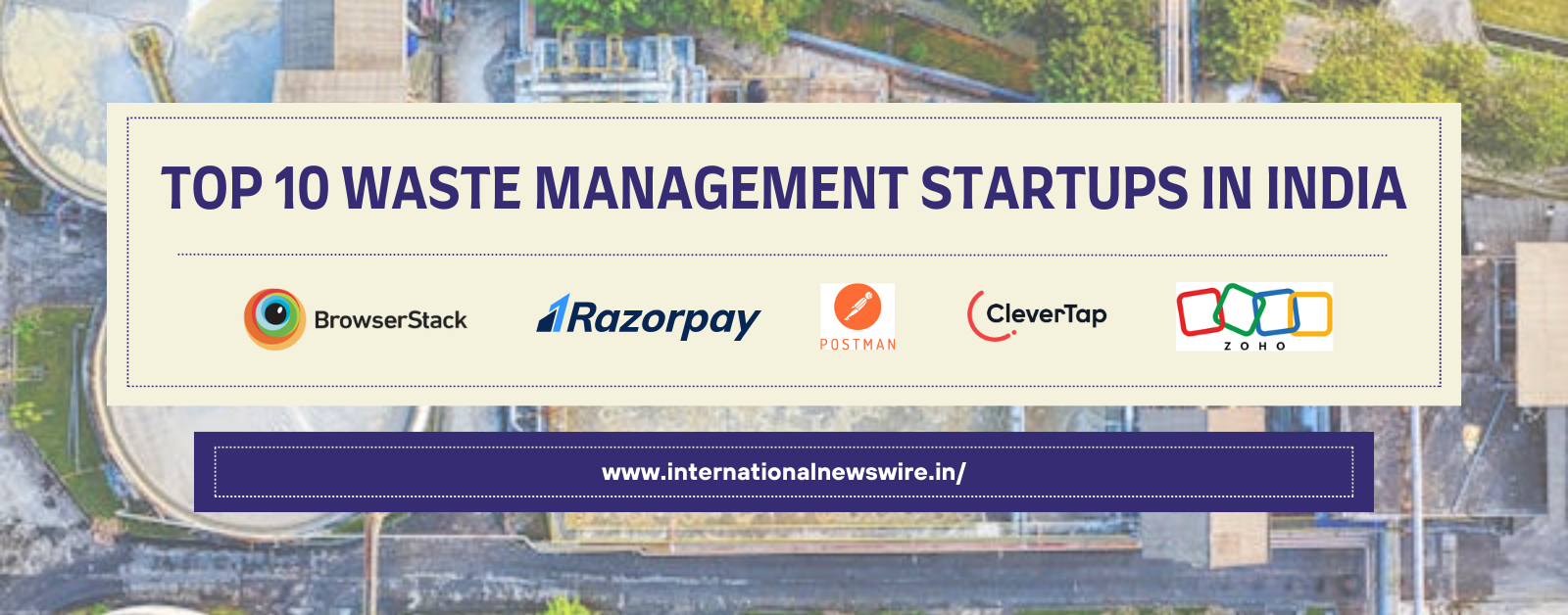India, as a burgeoning hub of innovation and entrepreneurship, is witnessing a significant rise in startups dedicated to sustainability. These Sustainable Startups are not only disrupting traditional industries but are also paving the way for a greener and more sustainable future. From renewable energy solutions to smart agriculture and electric mobility, these companies are at the forefront of integrating technology with environmental consciousness.
In this list, we explore ten notable sustainable startups in India that are making substantial contributions to environmental conservation, energy efficiency, and sustainable practices. Each of these companies showcases innovative approaches to tackling some of the most pressing challenges facing our planet today, demonstrating India’s commitment to sustainable development and global leadership in green entrepreneurship.
Let’s delve into their stories, innovations, and contributions towards building a more sustainable and resilient future.
Table of Contents
1.Zerodha
Zerodha revolutionized the Indian fintech space with its zero-commission trading platform, democratizing access to financial markets. Founded by Nithin Kamath in 2010, Zerodha promotes sustainable investing by offering tools and resources that encourage users to invest in ETFs and stocks of socially responsible companies. Their platform not only educates users on sustainable investment opportunities but also supports financial inclusion by making trading accessible and affordable for all.
| Detail | Description |
|---|---|
| Founded | 2010 |
| Founders | Nithin Kamath |
| HQ Location | Bengaluru, Karnataka |
| Sector | Fintech |
| Website | www.zerodha.com |
Also Read : Top 10 BioTech Startups in India
2.Ecolibrium Energy
Ecolibrium Energy, founded in 2010 by Chintan Soni, is a leader in smart energy management solutions based in Ahmedabad, Gujarat. Their flagship product, SmartSense, leverages IoT and AI to optimize energy consumption in industries. By providing real-time insights and analytics, Ecolibrium Energy enables businesses to reduce energy wastage, lower operational costs, and meet sustainability goals effectively.
| Detail | Description |
|---|---|
| Founded | 2010 |
| Founders | Chintan Soni |
| HQ Location | Ahmedabad, Gujarat |
| Sector | Energy Management |
| Website | www.ecolibriumenergy.com |
Also Read : Top 10 Renewable Energy Startups in India
3.Ola Electric
Ola Electric, a spin-off from Ola Cabs founded by Bhavish Aggarwal in 2017 and headquartered in Bengaluru, Karnataka, is dedicated to accelerating the adoption of electric vehicles (EVs) in India. They manufacture electric scooters and are developing a robust EV ecosystem, including charging infrastructure, to support sustainable urban transportation solutions.
| Detail | Description |
|---|---|
| Founded | 2017 |
| Founders | Bhavish Aggarwal |
| HQ Location | Bengaluru, Karnataka |
| Sector | Electric Vehicles |
| Website | www.olaelectric.in |
Also Read : Top 10 WaterTech Startups in India
4.CropIn
CropIn Technology Solutions, founded in 2010 by Krishna Kumar, is a leading player in the AgriTech sector based in Bengaluru, Karnataka. CropIn uses AI and data analytics to provide farm management solutions that empower farmers with real-time information and insights. By optimizing agricultural practices, CropIn promotes sustainable farming methods and enhances crop yields.
| Detail | Description |
|---|---|
| Founded | 2010 |
| Founders | Krishna Kumar |
| HQ Location | Bengaluru, Karnataka |
| Sector | AgriTech |
| Website | www.cropin.com |
Also Read : Top 10 Waste Management Startups in India
5.Blume Ventures
Blume Ventures, established in 2010 and headquartered in Mumbai, Maharashtra, is a prominent early-stage venture capital firm supporting sustainable startups across various sectors. Founded by Sanjay Nath and Karthik Reddy, Blume Ventures invests in innovative solutions that address environmental and social challenges, fostering a sustainable ecosystem of entrepreneurship in India.
| Detail | Description |
|---|---|
| Founded | 2010 |
| Founders | Sanjay Nath, Karthik Reddy |
| HQ Location | Mumbai, Maharashtra |
| Sector | Venture Capital |
| Website | www.blumeventures.com |
Also Read : Top 10 GreenTech Startups in India
6.Ninjacart
Ninjacart, founded in 2015 by Thirukumaran Nagarajan and based in Bengaluru, Karnataka, is a tech-driven agri-marketing platform. Ninjacart connects farmers directly with retailers, eliminating intermediaries to ensure fair pricing and reduce food wastage. By leveraging technology, Ninjacart promotes sustainable agricultural practices and improves efficiency in the supply chain.
| Detail | Description |
|---|---|
| Founded | 2015 |
| Founders | Thirukumaran Nagarajan |
| HQ Location | Bengaluru, Karnataka |
| Sector | AgriTech |
| Website | www.ninjacart.com |
Also Read : Top 10 SpaceTech Startups in India
7.Revolt Motors
Revolt Motors, founded by Rahul Sharma in 2019 and headquartered in Gurugram, Haryana, is pioneering the electric vehicle (EV) industry in India. They design and manufacture electric motorcycles aimed at offering sustainable alternatives to traditional petrol-powered bikes. Revolt Motors focuses on affordability, performance, and smart features to promote clean mobility solutions.
| Detail | Description |
|---|---|
| Founded | 2019 |
| Founders | Rahul Sharma |
| HQ Location | Gurugram, Haryana |
| Sector | Electric Vehicles |
| Website | www.revoltmotors.com |
Also Read : Top 10 Mobility as a Service (MaaS) Startups in India
8.IOTomation
IOTomation, founded in 2013 by Amit Shrivastava and based in Bengaluru, Karnataka, specializes in smart building solutions for energy efficiency. Their IoT-based platform monitors and optimizes energy usage in commercial buildings, reducing carbon footprints and operational costs. IOTomation contributes to sustainability by promoting smarter, more efficient buildings through innovative technology.
| Detail | Description |
|---|---|
| Founded | 2013 |
| Founders | Amit Shrivastava |
| HQ Location | Bengaluru, Karnataka |
| Sector | Smart Buildings |
| Website | www.iotomation.com |
Also Read : Top 10 Cyber Defense Startups in India
9.Bijak
Bijak, founded in 2019 and headquartered in Gurugram, Haryana, is a B2B agricultural trading platform that promotes transparency and efficiency in agricultural supply chains. Founded by Nukul Upadhye and Mahesh Jakhotia, Bijak digitizes transactions between farmers and buyers, ensuring fair pricing and reducing food wastage. By enhancing market access and promoting sustainable farming practices, Bijak supports the agricultural ecosystem in India.
| Detail | Description |
|---|---|
| Founded | 2019 |
| Founders | Nukul Upadhye, Mahesh Jakhotia |
| HQ Location | Gurugram, Haryana |
| Sector | AgriTech |
| Website | www.bijak.com |
Also Read : Top 10 Legal Services Startups in India
10.Ather Energy
Ather Energy, founded in 2013 by Tarun Mehta and Swapnil Jain and headquartered in Bengaluru, Karnataka, is a leading manufacturer of electric scooters. Ather Energy is known for its high-performance scooters equipped with smart features aimed at transforming urban mobility. By offering sustainable and technologically advanced alternatives to traditional petrol vehicles, Ather Energy contributes to reducing pollution and promoting cleaner cities.
| Detail | Description |
|---|---|
| Founded | 2013 |
| Founders | Tarun Mehta, Swapnil Jain |
| HQ Location | Bengaluru, Karnataka |
| Sector | Electric Vehicles |
| Website | www.atherenergy.com |
Also Read : Top 10 Remote Work Startups in India
FAQs on sustainable startups in India
1. What are sustainable startups?
Sustainable startups are businesses that prioritize environmental and social sustainability in their operations, products, and services. These startups often innovate to address challenges such as climate change, resource conservation, and social equity through their business models.
2. Why are sustainable startups important?
Sustainable startups play a crucial role in promoting environmental stewardship and responsible consumption. They introduce innovations that reduce carbon footprints, minimize waste generation, and foster sustainable practices across various sectors, contributing to long-term environmental and social benefits.
3. How do sustainable startups contribute to the economy?
Sustainable startups stimulate economic growth by creating new markets for green technologies and services. They attract investments, generate employment in green sectors, and drive innovation that enhances efficiency and competitiveness in the economy.
4. What sectors do sustainable startups in India focus on?
Sustainable startups in India span diverse sectors such as renewable energy, clean technology, sustainable agriculture, waste management, electric mobility, and eco-friendly consumer products. Each sector addresses specific environmental challenges with innovative solutions.
5. How do sustainable startups promote environmental sustainability?
Sustainable startups promote environmental sustainability by adopting eco-friendly practices in production, using renewable energy sources, reducing carbon emissions, conserving natural resources, and promoting circular economy principles. They aim to minimize environmental impact while meeting market demands.
6. What challenges do sustainable startups face in India?
Sustainable startups in India face challenges such as funding constraints for green initiatives, regulatory hurdles, scaling innovations to commercial viability, consumer awareness about sustainability, and integrating sustainable practices into traditional industries.
7. How can consumers support sustainable startups?
Consumers can support sustainable startups by choosing products and services that prioritize sustainability, advocating for policies that promote green practices, providing feedback to encourage continuous improvement, and spreading awareness about the importance of sustainability.
8. What role does government policy play in supporting sustainable startups?
Government policies can incentivize sustainable startups through grants, subsidies, tax breaks, and regulatory frameworks that encourage eco-friendly practices and investments in green technologies. Clear policy direction can also create a conducive environment for sustainable innovation and growth.
9. How can startups measure their impact on sustainability?
Startups can measure their impact on sustainability through key performance indicators (KPIs) such as carbon footprint reduction, resource efficiency metrics, waste diversion rates, adoption of renewable energy sources, social impact assessments, and certifications validating sustainable practices.
10. What are some successful examples of sustainable startups in India?
– Zerodha: A fintech startup promoting sustainable investing.
– Ecolibrium Energy: Provides smart energy management solutions.
– Ola Electric: Manufactures electric vehicles and develops charging infrastructure.
– CropIn: Uses AI for sustainable agriculture solutions.
– Blume Ventures: Supports sustainable startups through venture capital.
– Ninjacart: Tech-driven agri-marketing platform promoting fair trade.
– Revolt Motors: Designs and manufactures electric motorcycles.
– IOTomation: Develops smart building solutions for energy efficiency.
– Bijak: B2B agricultural trading platform enhancing transparency.
– Ather Energy: Manufactures high-performance electric scooters.
Conclusion
In conclusion, sustainable startups in India are not just innovative enterprises; they are trailblazers in addressing some of the most pressing global challenges, such as climate change, resource depletion, and social inequality. These startups harness technology, creativity, and a deep commitment to sustainability to redefine industries and promote responsible business practices.
Through their initiatives in renewable energy, clean technology, agriculture, transportation, and beyond, these startups are not only driving economic growth but also contributing to environmental stewardship and social well-being. They demonstrate that profitability and sustainability can go hand in hand, inspiring others to adopt eco-friendly practices and paving the way for a greener future.
As India continues to embrace sustainable development goals and policies, the role of these startups becomes increasingly pivotal. They serve as catalysts for change, influencing industries, policymakers, and consumers alike towards more sustainable lifestyles and practices. With ongoing support and collaboration, these startups have the potential to lead India towards a more resilient, equitable, and sustainable society.
In essence, the success of sustainable startups in India underscores their transformative impact on the economy, environment, and society at large, marking a paradigm shift towards a sustainable future that benefits all.
Also Read
- Top 10 BioTech Startups in India
- Top 10 Renewable Energy Startups in India
- Top 10 WaterTech Startups in India
- Top 10 Waste Management Startups in India
- Top 10 GreenTech Startups in India
- Top 10 SpaceTech Startups in India
- Top 10 Mobility as a Service (MaaS) Startups in India
- Top 10 Cyber Defense Startups in India
- Top 10 Legal Services Startups in India
- Top 10 Remote Work Startups in India
Last Updated on Friday, June 21, 2024 12:03 pm by International Newswire Team


